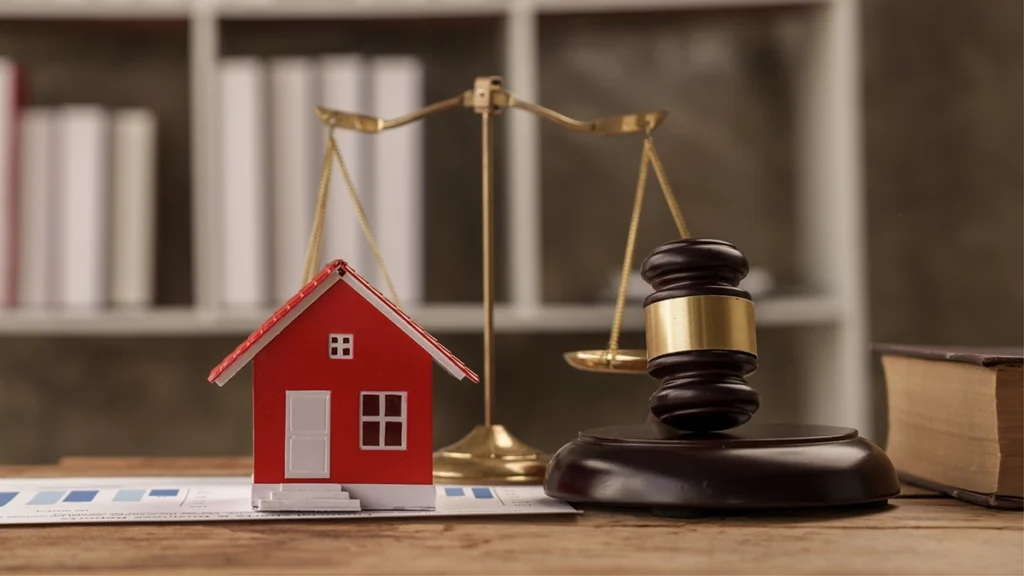If you could spare your family months of stress, unnecessary costs, and the risk of losing a home, wouldn’t you want to know how? Many people are surprised to learn that probate can turn simple plans into complicated legal steps that delay everything you worked hard for.
The good news is that there is a way to maintain control during your lifetime while ensuring your home passes on smoothly when the time comes.
Understanding how probate works and how to avoid it can bring true peace of mind and lasting protection for the people you love.
Understanding Probate
Probate is the legal process that oversees the transfer of a deceased person’s assets. It involves filing documents in court, notifying heirs and creditors, paying outstanding debts, and distributing what remains according to the will or state law. While probate provides oversight, it is often slow and costly.
Court fees, attorney charges, and mandatory filings can add up to thousands of dollars, and the process can stretch from several months to well over a year. During that time, heirs may face delays in accessing property they expected to inherit.
For example, a son who expects to take possession of his late mother’s Florida home may find himself waiting while creditors are notified and disputes are resolved. Until probate closes, he cannot freely sell, refinance, or even move into the property.
Probate ensures fairness, but it comes at the price of time, money, and emotional stress.
How Lady Bird Deeds Work
A Lady Bird Deed, sometimes called an Enhanced Life Estate Deed, works differently. With this document, a homeowner retains full control of the property during life: the right to live there, sell it, mortgage it, or even change the named beneficiaries.
Upon death, ownership passes automatically to the listed beneficiaries with a simple recording of the death certificate and an affidavit. No probate court is needed for that property.
It is important to note that Lady Bird Deeds are not recognized nationwide. They are valid only in Florida, Texas, Michigan, West Virginia, Vermont, and North Carolina. In those states, however, they have become a trusted tool for simplifying estate transfers.
Many families appreciate that the deed, once signed and properly recorded, overrides any conflicting instructions in a will. This means the property will go directly to the named beneficiaries, no matter what the will says.
Key Differences Between Probate and Lady Bird Deeds
Control During Life
Probate only takes effect after death, but it does not influence how property is managed during life. A will may outline intentions, yet the owner can still sell or refinance freely. By contrast, a Lady Bird Deed formalizes both control and inheritance. The homeowner keeps all rights while alive, yet beneficiaries gain a legal interest that activates at death. This combination is unique because no other deed form offers the same balance of freedom and planning.
Costs and Delays
Probate involves fees that can consume a portion of the estate. Court costs, legal representation, and administrative filings quickly add up. In contrast, a Lady Bird Deed requires only the upfront expense of preparing and recording the document. While minimal legal guidance may be advisable, the long-term savings are often significant. Families avoid the months or years of waiting associated with probate.
Privacy and Public Record
Probate records are public, meaning anyone can review the court documents and see details of the estate. Lady Bird Deeds provide more privacy. Once the deed is recorded, the transfer at death is almost invisible to the outside world. Families often appreciate that the transition happens quietly and without public filings beyond the death certificate.
The Human Side of Estate Decisions
Deciding between probate and a Lady Bird Deed is not just about legal structure, it is about family dynamics. Imagine a 68-year-old homeowner in Florida who raised her family in the same house for decades. She wants her daughter to inherit the property, but she also values the freedom to sell if she ever chooses to downsize.
By using a Lady Bird Deed, she can secure her daughter’s future while keeping her own options open. When she eventually passes, her daughter will avoid court involvement and gain immediate ownership.
This kind of planning removes uncertainty and provides emotional relief during a difficult time.
Limitations and Considerations
Not a Universal Solution
While Lady Bird Deeds are powerful tools, they are not perfect for every situation. For example, they cover real estate but not other assets like bank accounts, investment funds, or personal property.
Those items may still require probate or another estate-planning tool such as a trust. Families with multiple types of assets often use a combination of strategies to achieve a comprehensive plan.
Potential for Conflict
Because a Lady Bird Deed overrides a will for the property it covers, it can create tension if family members expect something different. Clear communication is essential. Homeowners should discuss their plans with beneficiaries to reduce the risk of surprise or disputes after death. Even though the legal process is streamlined, emotional conflicts can still arise without preparation.
Medicaid and Long-Term Care
In some states, Lady Bird Deeds can protect property from Medicaid estate recovery, allowing families to preserve a home for the next generation. However, rules vary, and professional guidance may be necessary to confirm how the deed interacts with state-specific Medicaid laws.
Probate, by contrast, does not offer such protection because the estate remains open to recovery claims.
Choosing the Right Path
There is no one-size-fits-all answer when comparing probate to Lady Bird Deeds. Some families value the oversight of probate, especially when complex debts or disputes are expected. Others prefer the simplicity, privacy, and speed of a Lady Bird Deed. Ultimately, the decision depends on goals: whether the priority is efficiency, control, cost savings, or legal structure.
Many homeowners use a Lady Bird Deed as part of a layered estate plan. They may set up trusts or joint accounts for other assets while relying on the deed to handle the family home.
This approach reduces probate to only those items that cannot transfer otherwise, shortening the process and reducing costs. For others, probate remains the default path, especially in states where Lady Bird Deeds are not recognized.
Key Takeaways
- Probate is court-supervised, often slow and costly, but ensures oversight.
- A Lady Bird Deed transfers property directly to beneficiaries, avoiding probate.
- Lady Bird Deeds are valid only in Florida, Texas, Michigan, West Virginia, Vermont, and North Carolina.
- They override a will for the covered property and provide both freedom and inheritance planning.



